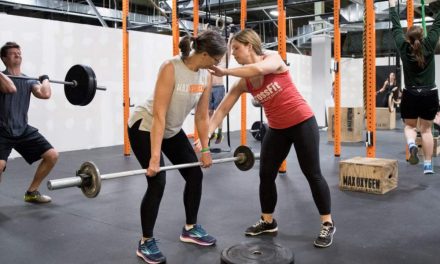In the realm of fitness, Empowering Women are breaking barriers and embracing the transformative power of gym workouts. Beyond the stereotypical image of weightlifting and intense training, modern gym fitness for women encompasses a holistic approach to health and strength. This article provides a comprehensive guide addressing gym fitness’s physical, mental, and emotional aspects, tailored to empower women on their fitness journey.
Understanding the Importance of Gym Fitness for Women:
Regular exercise is critical for overall well-being, and gym fitness offers a structured and versatile platform for women to grasp their health and fitness goals. Beyond weight loss and physical appearance, regular gym workouts contribute to increased energy levels, improved mood, enhanced mental clarity, and reduced risk of chronic diseases. Recognizing the multifaceted benefits of fitness is the first step towards building a maintainable and fulfilling workout routine.
Designing an Effective Workout Routine:
Cardiovascular Exercise:
Cardio workouts are essential for heart health, calorie burning, and stamina building. Women can choose from various options, including running, cycling, swimming, or group fitness classes. Aim for at least 150 minutes of moderate-intensity cardio per week to experience cardiovascular benefits.
Strength Training:
Dispelling the myth that lifting weights makes women bulky, strength training is a fundamental component of a well-rounded fitness routine. Incorporate resistance training using dumbbells, kettlebells, or resistance bands to build lean muscle mass, boost metabolism, and strengthen bones.
Flexibility and Mobility:
Integrating flexibility exercises such as yoga or Pilates enhances the range of motion, reduces the risk of injuries, and contributes to better posture. Women should include stretching and mobility exercises to improve flexibility and maintain joint health.
Balance and Core Work:
Balancing exercises and core workouts are essential for stability and functional strength. Activities like stability ball exercises, bosu ball exercises, and unilateral movements contribute to better balance and a strong core, crucial for everyday activities and injury prevention.
Mind-Body Connection:
Consider incorporating mindfulness practices into your workout routine, such as meditation or mindful breathing. Cultivating a solid mind-body connection enhances workout performance, reduces stress, and improves mental well-being.
Addressing Common Concerns:
Fear of Judgment:
Many women may feel self-conscious in a gym environment. Remembering that everyone is on their unique fitness journey and focusing on personal progress is key. Most people at the gym are focused on their workouts and won’t judge others.
Menstrual Health:
Women’s hormonal cycles can influence energy levels and workout performance. Tailor your workout intensity based on how you feel during different phases of your menstrual cycle. Staying active can help alleviate menstrual symptoms for many women.
Postpartum Fitness:
Postpartum fitness is a gradual process for women who have recently given birth. Consult a healthcare professional and gradually reintroduce exercise, starting with low-impact and pelvic floor exercises. Postpartum fitness classes can offer specialized guidance.
Building a Supportive Community:
Joining fitness classes, whether in-person or online, can foster a sense of community and support. Connecting with like-minded individuals creates a positive and motivating environment that significantly enhances adherence to a fitness routine. Social support is an influential factor in achieving long-term fitness goals.
The Importance of Nutrition:
Exercise alone is insufficient for achieving fitness goals; proper nutrition plays a crucial role. Women should focus on balanced food rich in lean proteins, whole ounces, fruits, vegetables, and healthy fats. Adequate hydration is also essential for overall health and optimal workout performance.
Tracking Progress and Setting Realistic Goals:
Tracking progress is a key motivator in any fitness journey. Set realistic and measurable goals, improving strength, increasing endurance, or achieving specific fitness milestones. Celebrate small victories along the way, and be adaptable in adjusting goals as your fitness level evolves.
Conclusion:
Gym fitness for women extends far beyond aesthetics, encompassing a holistic approach to health, strength, and well-being. By embracing a diverse workout routine that includes cardiovascular exercise, strength training, flexibility work, and mindfulness practices, women can unlock their full potential and experience the transformative power of fitness. Overcoming common concerns, building a supportive community, and prioritizing nutrition is integral to a successful fitness journey. Empowerment through gym fitness is not just about physical strength; it’s about fostering resilience, confidence, and a positive relationship with one’s body. As women redefine the narrative around fitness, they pave the way for a future where health and strength know no gender boundaries.





